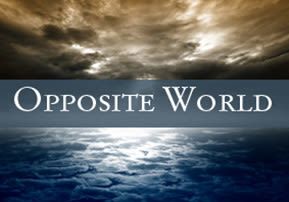
Opposite World
What looks bad can be good and what looks good could very well be bad. The handsome bachelor that all the girls want to marry might be an egotistical nightmare of a husband...

Do you remember Opposite Day at school? You know, when you were supposed to say the opposite of what you meant, or wear opposite colors. It drove me crazy! By the end of the first hour I was so confused, I gave up. Imagine, trying to compliment each other on our cute outfits in the morning: “Bye! Your outfit is…uh…so..UGLY…and I really hate your hair!” Or talking about the next class: “I can’t wait for Trig! Yeah, I really LOVE math!”
But did you know that we live in Opposite World? Kabbalah explains that in this physical plane, what we see is, many times, the opposite of what’s really going on. Everything around us is an illusion- what looks to be good can be bad, and vice versa. This is why there is one general rule that we should make a part of our daily lives: never trust your five senses. There are several stories I’d like to share with you, to show to what extent we really have no idea what’s going on. More importantly, these stories will hopefully point out why having emuna is absolutely the most important thing in the world.
Story 1: Abraham the Patriarch’s Death. “The Torah Anthology” describes how Abraham died: “For a few days he suffered from a severe intestinal illness; thus his flesh shrank and he became extremely weak.” I don’t know about you, but that doesn’t sound like a fun way to die. Those who look at this with a rational mind might come to the conclusion that it really doesn’t pay to be righteous, because they also meet their end in a terrible way. It continues: “There are two reasons for this. First, it shows that G-d loves them (the righteous). If they died at their full strength, the separation of the soul from the body would be painful. When one is very weak, the soul leaves the body as easily as a hair being drawn from a glass of milk. Second, this disease (intestinal illness) purifies the body of all waste matter and sanctifies it. Thus, when the saints stand before G-d to be judged, there is no defiled matter in their bodies. Since saints keep themselves pure during their lifetimes,  Providence sees to it that they are also clean when they leave this world.”
Providence sees to it that they are also clean when they leave this world.”
Wow.
I don’t know about you, but that explanation makes so much sense to me! It is a perfect example of what looks bad is actually good. One of the biggest mistakes that we make is that we forget that this life of physicality is just a part of the big picture. Our lives started before this lifetime, and will continue on afterwards, whether only in the spiritual realms or with a return to this world.
There is another great example of a baby that was born with a birth defect in the book, “Minhat Yehudah” by Rabbi Yehuda Pataya, the prime disciple of Rabbi Yosef Chaim, or The Ben Ish Chai. There was a man who was very handsome, and used his charm and beauty to commit all types of sexual misdeeds. He died a painful death and ended up inhabiting the body of his sister, who was still alive. After several years of Rabbi Pataya attempting to rectify his soul, the man still stubbornly refused to cooperate. Finally, Rabbi Pataya prayed that this man’s soul be separated into two half-souls, one completely good and the other completely bad. The good half would incarnate into a new person. The bad half would continue to be worked on by Rabbi Pataya.
A few days later, Rabbi Pataya was the Sandek (godfather, or person who holds the baby) at the bris of a baby boy. As he sat in the sandek’s chair, he saw that the baby was partially blind. It was then that he realized that this was the good half of the other man’s soul. He understood that the blindness was a mercy for this soul, because as a result the boy wouldn’t be able to commit the same transgressions he had in his former life. He would then be given the greatest chance at living in purity and meriting his ultimate reward.
Think back to a moment where you were about to make an important decision in your life. Pick an instance in which that decision didn’t work out the way you hoped it would. For example, if you were engaged to someone, and the engagement was called off. Or if you had planned to hold a certain IPO stock, but you decided to sell before the stock shot up like a rocket.
Have you ever thought about such instances in a different way? Are you happily married now to your second fiancee? If so, aren’t there many times in which you thank G-d that He didn’t let you marry your original intended spouse? Could you imagine what you would be missing out on? What about the job you were supposed to start? How are you so sure it would have worked out for your best? How many people do you know that made millions, only to lose it and then some later on? And what about that famous saying: “More money, more problems”? Everyone knows it’s true.
What looks bad can be good and what looks good could very well be bad. The handsome bachelor that all the girls want to marry might be an egotistical nightmare of a husband. The perfect woman might be a looney toon. How many people have regretted not marrying “the one that got away”? They might spend years tearing themselves up over it. Why didn’t they appreciate this person enough? Why couldn’t they have been nicer? How did they let such a good thing go?
But who’s to say it would have worked out? I once heard something very funny, yet profound: The best way to ruin a romance is to get married. Married people, you know what I’m talking about! The person you’re married to isn’t the same person you married! People who aren’t married just don’t have the same level of difficulties as married couples, even if they have children and are living together. The reason is that when two people get married, they turn into one body, but with two heads, like The Two-Headed Monster on Sesame Street. Many times married couples also end up speaking gibberish to each other, just like the aforementioned monster, when the husband just doesn’t understand the wife and vice versa. Or one wants to go this way and one wants to go the opposite direction, but they’re stuck together!
This is why emuna is not only a positive addition to our lives- it’s absolutely vital. It’s like the air we breathe. We just can’t survive without it. Our daily and lifelong challenges are getting tougher and tougher. No one can just get through life without having some major difficulty. Honestly, it’s easy to see why so many people turn against G-d and religion when they go through a rough time. They settle on the fact that they’re cursed with a certain problem, so they come to the conclusion that G-d doesn’t care about them, or the write Him off completely. At that point, they make themselves believe that everything in the world is random and they are simply the victims of their situations.
This is simply not true! There is a Creator Who loves you more than you can imagine! The last thing He wants is for you to suffer. But do you know what? Most of our suffering is self-induced. Sure, we all go through painful situations. There is a difference, however, between pain and suffering. Pain is usually something that doesn’t last for a long time. It has a definite end. But suffering is when we prolong the pain we feel way past the painful event we experienced. We may drag it with us day in and day out, like a ball and chain attached to our ankles. An example is when a person who has lost a loved one still grieves years later with the same intensity as a few days after the loved one died. Many times we also perpetuate our suffering when we keep reacting to certain difficult situations the same unproductive way. A classic example is the way I react to my kid’s nonsense, even though I know I shouldn’t let them get to me.
We just can’t seem to let go of our pain.
I have personally seen that emuna is the best and only way to really be happy in life. It doesn’t matter if the situation looks bad- a person with emuna knows it’s for his ultimate benefit. The problem is when we try to logically connect the dots between the challenge and the benefit. The reality is that most of the time, we simply can’t.
Until we merit understanding and really seeing with our enlightened perception how all of our pain was for our best, emuna can connect the dots for us. This is ultimately what our free will is: to accept and be happy with every situation, or to be reactive and stuck in a victim-like mentality.
With emuna, the choice is simple, and much more pleasant. The next time you encounter a difficult situation, remember that it is not as it appears, and let your emuna do the thinking for you!





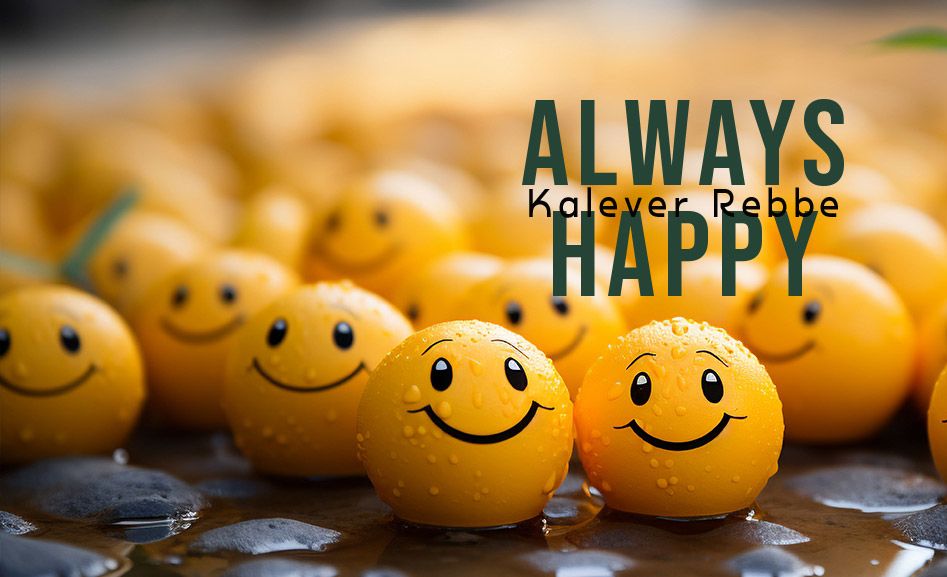
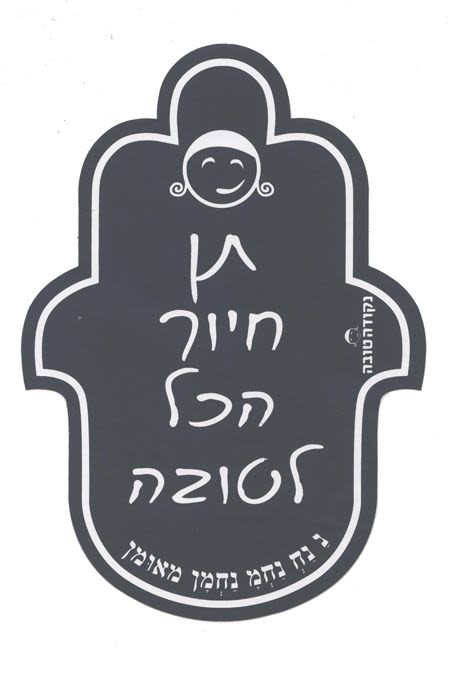

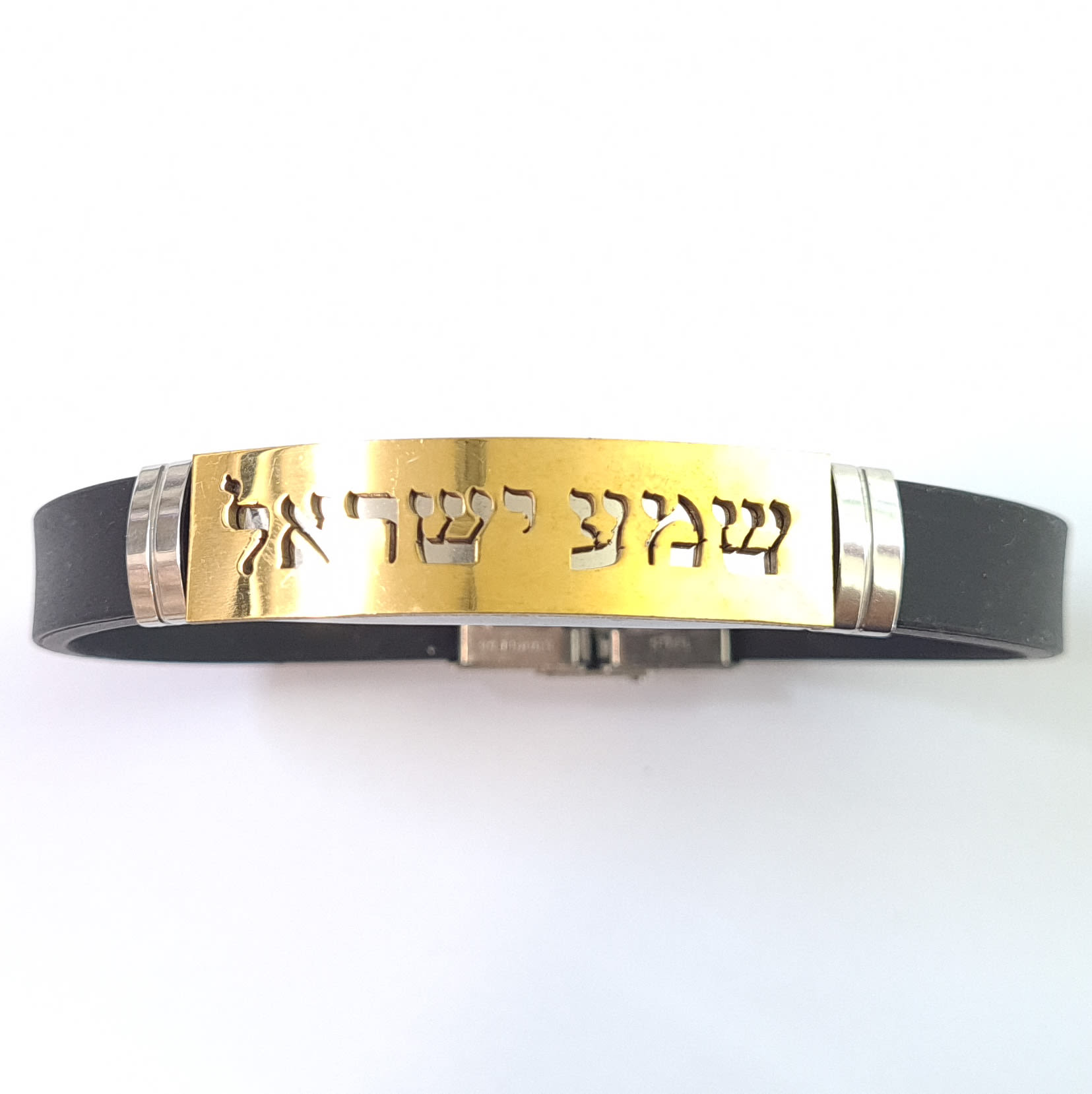
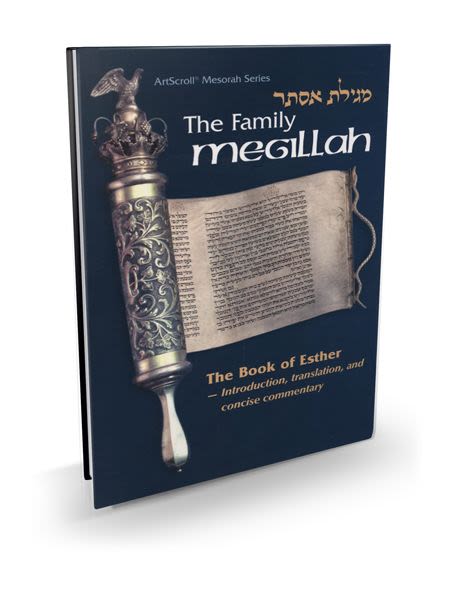
Tell us what you think!
Thank you for your comment!
It will be published after approval by the Editor.